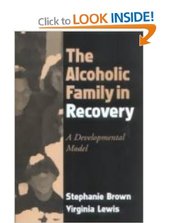 In my blogs, I will explore the nature of recovery and will sometimes focus on the ideas of someone else (or a group of people). I’ve previously looked at how David Best has talked about ‘What is Recovery?’ David described key principles underlying addiction recovery.
In my blogs, I will explore the nature of recovery and will sometimes focus on the ideas of someone else (or a group of people). I’ve previously looked at how David Best has talked about ‘What is Recovery?’ David described key principles underlying addiction recovery.
In this blog, first posted on this website in June 2103, I am going to look at what Julie Repper and Rachel Perkins have to say about ‘What is Recovery?, as described in their excellent book Social Inclusion and Recovery: A Model for Mental Health Practice. They include a number of quotes about recovery, some of which I will use here.






 In an earlier blog, I referred to Stephanie Brown’s book
In an earlier blog, I referred to Stephanie Brown’s book 
